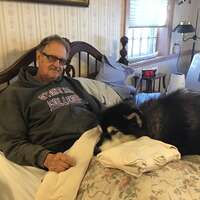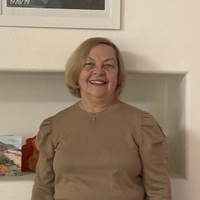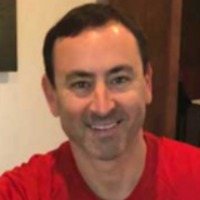About Me (In My Own Words)
I wasn't aware of this website pre-op, so I can only tell my story post-op. But I've read of so many people facing this who say they're scared--even terrified--that I wanted to assure them through my own experience: Don't be.
(The mortality rate for your operation is a whopping TWO PERCENT. And those, my surgeon informed me, are usually people with other diseases besides heart disease.)
I had to have full open heart surgery because two of my valves needed fixing, and that can't be done minimally invasively. I was never scared about it, just wished it would somehow go away, lol.
My biggest anxiety was about pain. Would I have to get through the first post-op weeks gritting my teeth or else risk becoming a drug addict?
To my astonishment, my post-op pain wasn't an issue at all. I assume I was on a narcotic the first post-op day, but I can't remember a thing. By the next day, out of ICU, I was switched to ibuprophen. By the third day, I said I don't even need that anymore. Pain-wise I was fine, and Barbara Walters said the same of her own open-heart procedure. (You can find clips of her open-heart surgery special on youtube--very worth watching.)
Yes, I still had pain during the big four--coughing, sneezing, laughing and deep breathing exercises (necessary to prevent pneumonia)---but the heart pillow they give you serves as a great splint for those occasions: just hug it as though it were your soulmate (and for a while, it will be).
So here were the real "downs" for me. But first a disclaimer: everyone has their own individual experience of heart surgery. Yours won't be exactly like mine. Yours might even be better (though mine was pretty darn good).
Downers:
'
(1) Incredible fatigue. I've always been very active, but post-op I'd take a few steps then just want to sink back in bed again. My big fear: will I be this way from now on, for the rest of my life? NO! It goes away, and in my case, pretty quickly.
(2) Loss of appetite and nausea. Probably due to all the meds they initially put me on. They can give you a patch for nausea, but I still didn't feel like eating, despite my wonderful nurses--all Jewish mothers at heart--urging me to eat *something.* ("Eat a saltine at least--for me.")
DON'T if you can't. You won't die from not eating a while. Your body will tell you exactly when it wants food again. And that will happen sooner than you think.
(3) Sleep pattern disruption. Nothing like going to bed around nine and waking up feeling you've had a full night's sleep. Then you look at the clock and it's 2 in the morning! You've got five more hours to get through and you can't sleep another wink.
They can give you something for that. Just don't take a lot of naps during the day, tempting though that is.
And now, the absolute worst of all--the envelope, please.
(4) CONSTIPATION. If you haven't had a BM for two consecutive days, ask for a laxative. Your health care team may not keep on top of that, so you've got to. I woke up one morning feeling beyond horrible intestinally, and I realized I hadn't had a BM in six days. It took a fair bit of work on everyone's part to get me cleaned out, and I was groaning the whole time.
Don't go through that. Ask for that laxative after 2 non-BM days.
They told me it would take me four to six months to feel really great again. I did it in four to six weeks. I attribute that to my pre-op. lifestyle of diet and exercise: I'm basically a vegetarian and I walk at least two miles every day.
If your diet and exercise haven't been the greatest, you can now change it. Listen diligently to--and obey!--the nutritionist's directives. (Healthy food actually tastes great--it just take a while for those on the Standard American Diet (aka SAD) to realize it.)
For exercise, you don't have to lift barbells and run your butt off, unless you want to. All you have to do is WALK. Walk as much as you can. If you don't have to take the car to get where you're going, walk. If you do have to take the car because of distance, don't look for the nearest parking space when you arrive. Instead park 1/2 to 1 mile away and walk in. Do that routinely, if your time permits.
Make friends with all the staff who are taking care of you. Joke with them, as much as your energy permits. Ask about their families and friends. The aim here is to stop feeling like your intimate relationships are all "out there" (even though they visit you) and you're stuck here in the hospital with strangers. They're not, unless you see them that way.
One of the sweetest-looking nurses I'd had told me, once we became friends, that she liked to go to dive bars on her off-evenings. Wow! A punk nurse! And a superb one. So don't chat so much about what's going on with you, but what's going on with them. Not only will you feel much more "returned to life" but you'll learn a lot.
Last word: In the weeks preceding my operation, I was gritting my teeth at what was ahead of me. But a week before my date with the knife, my perspective suddenly changed. Instead of thinking about what was happening to ME, I began to realize I was doing this for my very best friend in the whole world: my heart.
My heart had been there for me for so many years (I'm 70), always working hard and lovingly to keep me going. And now it needed my help.
"Don't worry," I said to it. "You took care of me, now I'll take care of you. Isn't that what best friends are for?"
From then on, I was at utter peace. As they were prepping me for my operation, I joked with everyone and they joked back. I didn't have a care in the world because I was doing the right thing.
Looking back at everything now, I feel my open heart surgery was one of the most beautiful experiences of my life. It reconnected me to life in ways that went far beyond the physical.
May those of you who are still facing it wind up feeling the same way. (And take that laxative!)
More Info About Me & My Heart
More About Me
-

I am from:
Seattle
-

My surgery date is:
August 18, 2015
-

I was diagnosed with:
Aortic Regurgitation
Mitral Regurgitation
-

My surgery was:
Aortic Valve Replacement
Mitral Valve Repair
-

-

 I am from: Seattle
I am from: Seattle My surgery date is: August 18, 2015
My surgery date is: August 18, 2015






